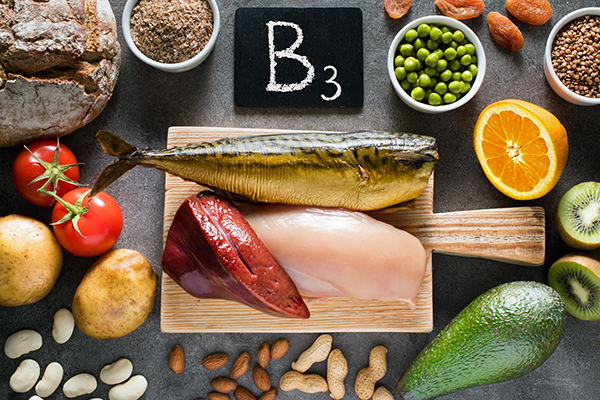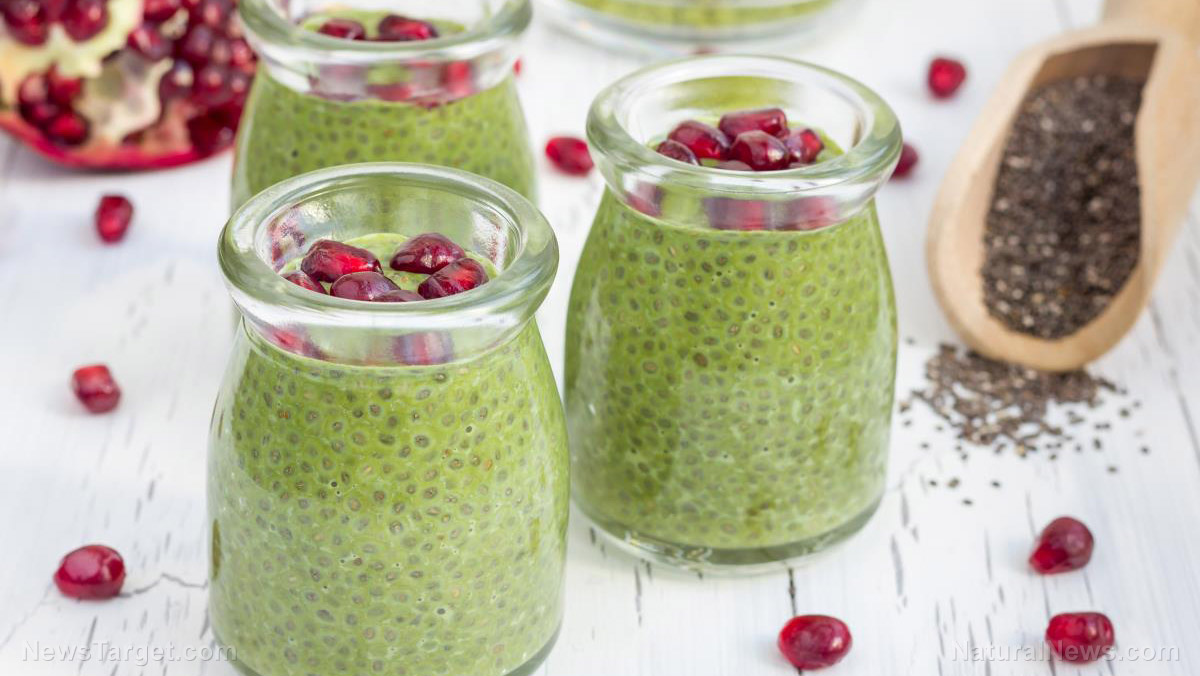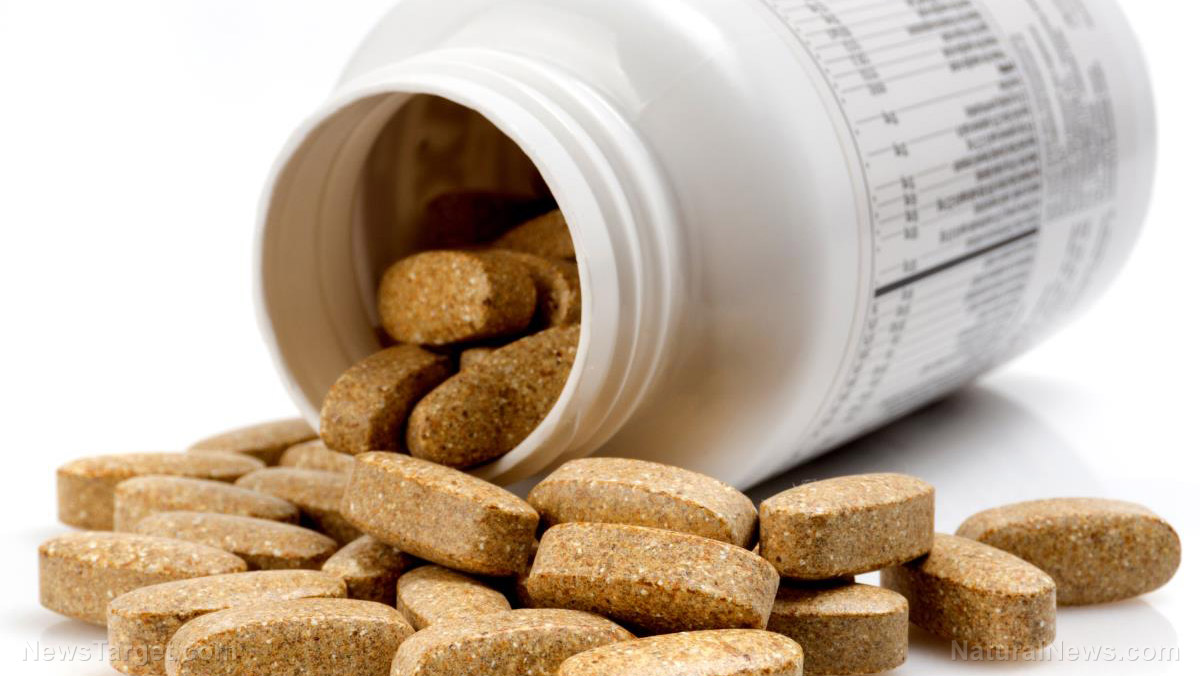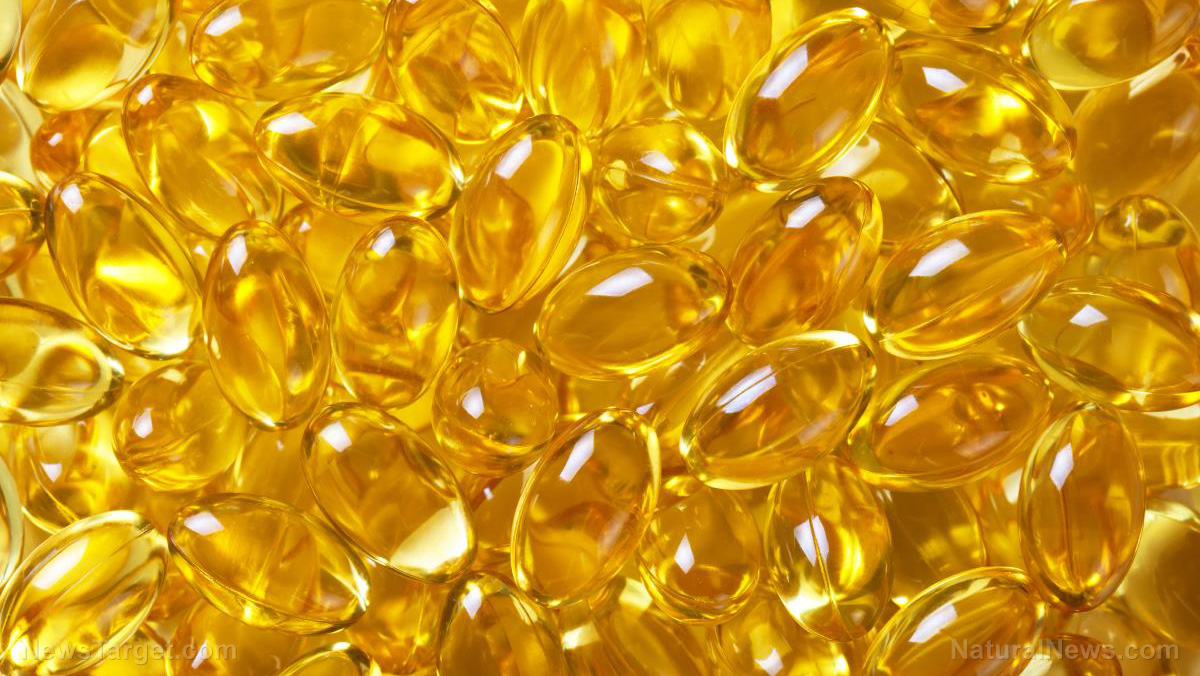8 Science-backed health benefits of vitamin K
02/01/2023 / By Olivia Cook
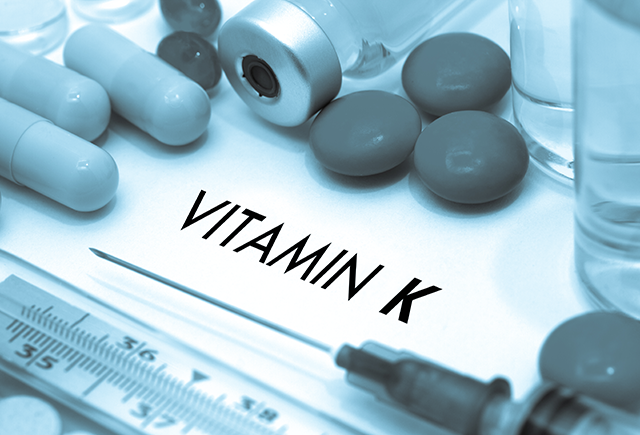
Vitamin K exists naturally in two forms – vitamins K1 and K2.
Vitamin K1, or phylloquinone, is the primary dietary form found in leafy greens like broccoli, Brussels sprout, cabbage, collard, kale, lettuce and spinach; and in fruits like avocado, banana, grape, kiwi and prune.
Vitamin K2, or menaquinone, is found in small amounts in high-fat dairy products from grass-fed cows and egg yolks; liver and other organ meats; and fermented foods like cheese miso, natto and sauerkraut. (Related: What are the best food sources of vitamin K?)
Studies show that vitamin K can help do the following:
Curb progress of aortic valve calcification
A study published in the journal Circulation has indicated that vitamin K2 (menaquinone-7) reduced the progression rate of aortic valve calcification in patients with aortic stenosis, a condition that occurs when the aortic valve narrows and blood cannot flow normally. (Related: Vitamin K1 and K2: Which form benefits cardiovascular health?)
Inhibit tumor growth and cancer cell activity
A study published in the journal Nutrients has reported on the exemplary effects of vitamin K on breast, cervical and ovarian cancers, which included tumor growth inhibition, inhibition of cancer cell activity, inhibition of tumor growth, reactive oxygen species (ROS) generation/production and induction of apoptotic cell death. (Related: Reduce cancer risk with nutritious Brussels sprouts.)
Regulate process of blood coagulation
Without vitamin K, our bodies will not be able to control clot formation. Vitamin K helps to regulate the process of blood coagulation by assisting in the conversion of certain coagulation factors into their mature forms.
Vitamin K helps to make four of the 13 proteins needed for blood clotting, which stops wounds from continuously bleeding so they can heal.
Promote bone health
A study published in the International Journal for Vitamin and Nutrition Research has indicated that vitamin K2 promotes healthy bone mineral density by carboxylating osteocalcin, a protein that binds calcium in bones.
Researchers concluded that in postmenopausal women who had experienced hip or vertebral compression fractures, supplemented with either five or 45 milligrams/day of vitamin K2 (menaquinone-4) reduces undercarboxylated osteocalcin to concentrations typical of healthy, pre-menopausal women. (Related: Vitamin K may be the key to osteoporosis prevention.)
Boost cardiovascular health
A study published in the Journal of the American Heart Association indicated that improving vitamin K status boosts cardiovascular health by reducing arterial stiffness and improving blood pressure.
Among 53,372 Danish citizens, aged 52-60 years, participants with higher intakes of vitamin K had a 21 percent lower risk of an atherosclerotic cardiovascular disease-related hospitalization.
Hinder aging-related changes in brain
“Vitamin K2 demonstrated a very promising impact in hindering aging-related behavioral, functional, biochemical and histopathological changes in the senile aging brain,” said Dr. Mohamed El-Sherbiny of AlMaarefa University in Saudi Arabia, senior author of a study published in SciTechDaily.
Reduce diabetes risk and improve insulin sensitivity
Researchers of a study published in the journal Nutrients have indicated that supplementation of vitamin K reduces the risk of diabetes mellitus and improves insulin sensitivity. (Related: Vitamin K helps prevent diabetes.)
Observation studies in humans showed the following results:
- Healthy young male participants with higher dietary vitamin K intake showed better insulin response and glucose tolerance.
- Dietary intake of both vitamin K1 and vitamin K2 was associated with a reduced risk of Type-2 diabetes mellitus in adult men and women.
- Higher circulating vitamin K1 may be causally related to a lower risk of Type-2 diabetes mellitus, highlighting the importance of sufficient phylloquinone intake in the human diet.
Intervention studies in humans showed the following results:
- Vitamin K1 supplementation had a protective effect on the progression of insulin resistance in older men.
- Vitamin K1 supplementation had beneficial effects on glycemic status and insulin sensitivity in premenopausal and prediabetic women.
- Short-term vitamin K2 supplementation improved the insulin response after an oral glucose challenge in young men.
Boost prostate health
Researchers of a study published in The American Journal of Clinical Nutrition have associated higher levels and intake of vitamin K2 with lower prostate cancer risk and vitamin K2 deficiency has been found in most men with aggressive prostate cancers.
Learn more about essential nutrients and their health benefits at Food.news.
Watch the following video to know about the seven foods that are rich in vitamin K.
This video is from the Groovy Bee channel on Brighteon.com.
More related stories:
Vitamin K could offer protection against severe COVID-19, study shows.
Low vitamin K levels associated with disability and mobility limitations in the elderly.
New research on vitamin K suggests that it may promote eye health.
Sources include:
Submit a correction >>
Tagged Under:
aging secrets, alternative medicine, blood coagulation, bone health, brain health, food is medicine, food science, health science, heart health, men's health, menaquinone, natural medicine, nutrients, phylloquinone, prevent diabetes, prevention, supplements, vitamin K1, vitamin K2, women's health
This article may contain statements that reflect the opinion of the author
RECENT NEWS & ARTICLES
BrainNutrients.News is a fact-based public education website published by Brain Nutrients News Features, LLC.
All content copyright © 2018 by Brain Nutrients News Features, LLC.
Contact Us with Tips or Corrections
All trademarks, registered trademarks and servicemarks mentioned on this site are the property of their respective owners.


